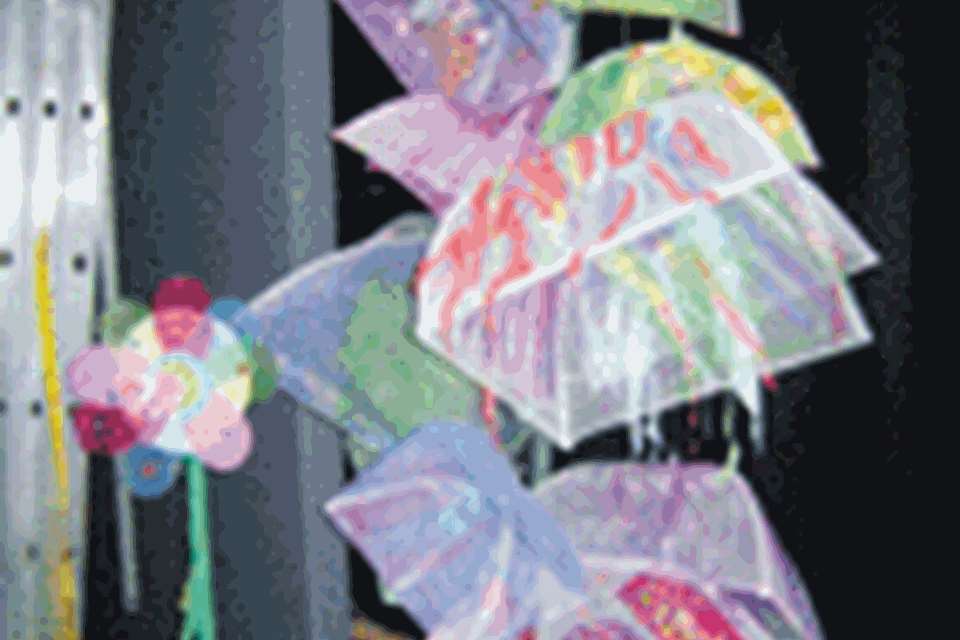Learning & Development: Theatre - Going live
Miranda Walker
Monday, March 23, 2015
Theatrical performances can set the scene for dramatic expression, language learning and improved concentration. Former nursery owner and playwright Miranda Walker explains.

By giving children the chance to experience the thrill of live theatrical performance, you can take the all-important sharing of stories to a whole new exciting level. Nothing quite compares to a young audience captivated by a world unfolding before their eyes. Simply enjoying a piece of theatre is in itself an important outcome, but live performance also has many other benefits for young children.
It captures imagination and often sparks both creative curiosity and the impulse to be dramatically expressive. It richly promotes language and literacy, but also introduces unique theatrical conventions, prompting interpretation when there is no language spoken at all. It encourages the development of attention and concentration, as well as confidence and self-awareness - children often surprise with their insights into performances they have seen. Theatre can also be an exceptional way to explore diverse themes, as it provides a window on the wider world.
It also provides an opportunity to foster a lifelong love of the arts, and theatre makers are committed to making young children's important first experiences a resounding success.
Paul Milton, creative director at Cheltenham's Everyman Theatre, says, 'We only programme shows that will speak to children on a relevant level. There's a big difference in the concentration span of under-fives and school-aged children, but younger ones still think carefully about what they see, and deeply engage with good, lively storytelling, so they should never be patronised.'
Much consideration is also given to the practicalities of attending the theatre. 'Our front-of-house staff need to be friendly and amenable, putting children and the adults accompanying them at ease,' he adds. 'It's fine for children to talk if they want to - even to the actors - and to move around.'
As well as a main stage, the Everyman has a smaller, intimate Studio Theatre, in which it frequently creates a perfect, gentle, introductory environment for younger children - the house lights may be left partially on, for instance, so the space is never in darkness.
BANDSTAND PARK
So plays for younger children are out there, but how do they come about, and how can theatre makers ensure they are right for this precious audience? I wanted to create a piece that would enchant young children and promote the early learning goals, so I took my idea for a play, Bandstand Park, to the Everyman Theatre.
In the play, the very special park is named after its most exciting attribute - a magical old bandstand that not only hosts musical performances but conjures up surprise gifts for its visitors. It introduces a community who love the beautiful setting and work together to ensure that it is a place everyone can enjoy, taking care of its features, nurturing living things and enjoying one another's company.
Sharing music is central to the play, creating opportunities for children to join in with songs, dance and the playing of instruments. It is intended to be performed on tour to real bandstands, enabling children to discover the joy of performance in such a special location.
I was commissioned to write a first draft, ready for a week of development at the theatre. Rehearsals would put the show 'on its feet', and it would be staged for test audiences of young children. Director Jude Emmet came on board, and actors Richard Curnow and Elise Heaven were cast as Ted, the park warden, and Dixie, the young park play ranger, who is learning to take care of her environment alongside a hedgehog (puppet) named Roland. Corin Hayes, studio production manager, cleverly turned a gazebo into a bandstand structure for us, so the play could be performed 'in the round', as it would be on tour.
Establishing a creative team with a strong affinity with children was paramount, and this one comprised experience, insight, physical comedy, puppetry skills and amazing, take-your-breath-away energy. The characters are keen singers, and Elise, a talented actor/musician, wrote original music for my lyrics, and also played ukulele in the show.
Over a highly collaborative week, we got to grips with the practicalities of how the show worked, including tricky staging issues such as how surprise gifts would 'magically arrive' and how our puppet would be animated (covertly achieving this when the audience is all around is not easy!). We also devised how characters would interact with the children when involving them in activities such as making musical instruments.
On performance day, our actors did an incredible job. It was heart-warming to see children engaged and captivated, and their responses will invaluably inform the second draft of the script. The theatre is currently in the process of finding funding for this and for the tour, so we hope Bandstand Park will be on the road soon. And with our portable bandstand set, performance in theatre spaces and even children's settings is also an exciting possibility.
MORE INFORMATION
- You can contact Miranda Walker at scriptsbymiranda@tiscali.co.uk.
[asset_library_tag 728,Download the PDF]






